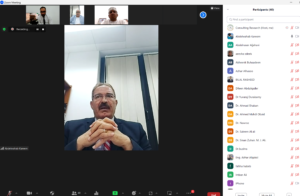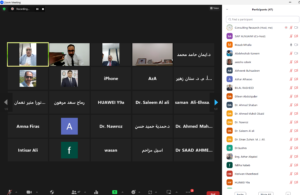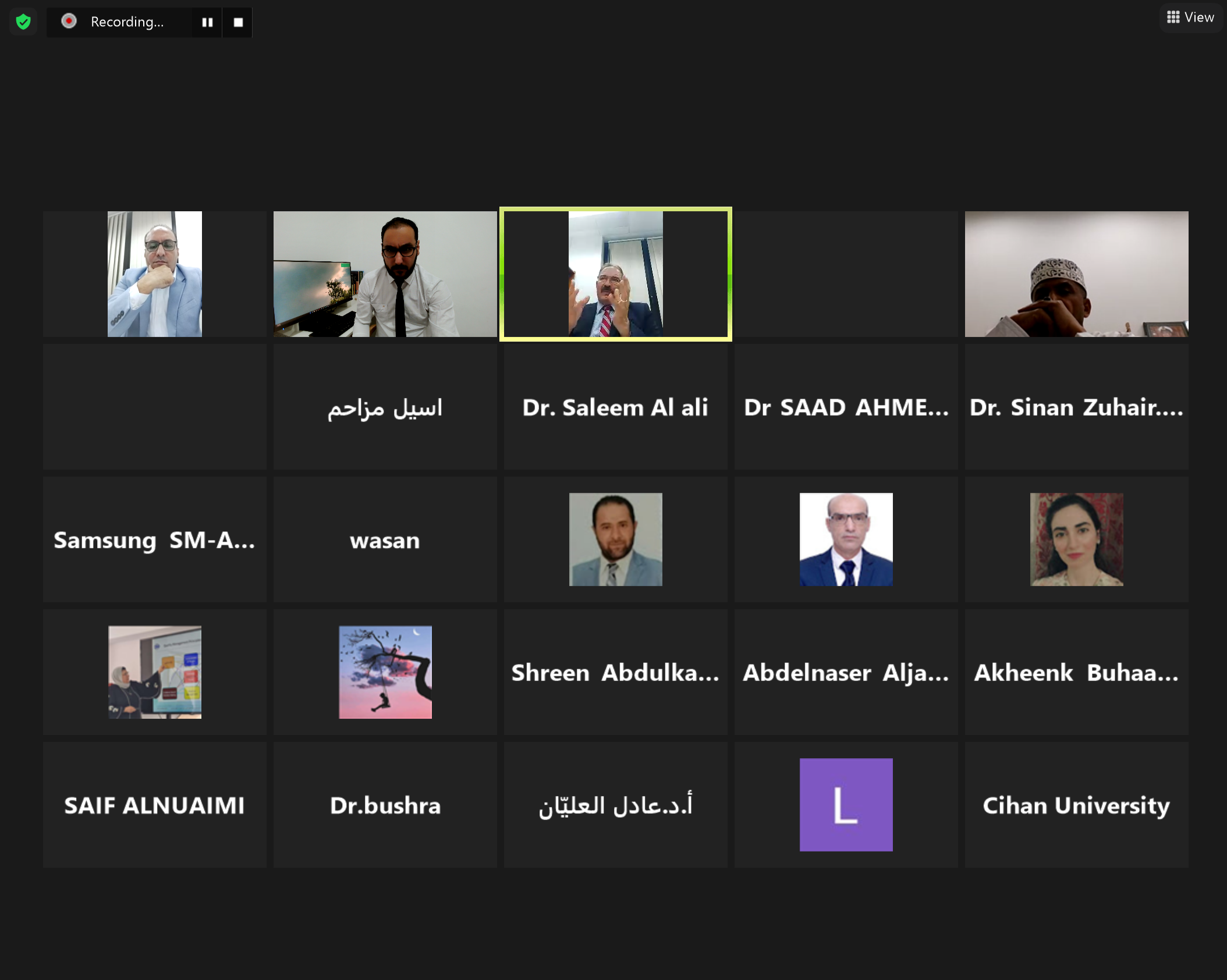On Monday, 03/04/2023, the Research Center at Cihan University – Duhok held an international webinar by zoom platform entitled “Security challenges for the Arab Gulf states and the return of Saudi-Iranian relations“.
🎙️Hosted by the speakers:
– Dr. Abdelwahab Kareem, from Sultan Qaboos University in the Sultanate of Oman, holds a Ph.D. in International Law and International Relations.
– Dr. Masab Yousef Mhalla, From Sultan Qaboos University in the Sultanate of Oman, holds a Ph.D. in political science and constitutional law.
Session Summary:
The session summarized the importance of the Saudi-Iranian agreement and what it will result in in the near future.
Where it is considered the most important diplomatic event in the region during the past years, if it is adhered to, and it will have many repercussions and indications on the conflict-ridden Middle East region. After numerous unresolved rounds in Iraq and Oman in the years 2021–2022, the announcement of the agreement from Beijing is an unparalleled success for Chinese diplomacy, with significant repercussions in the international and regional arena. The agreement is a change in China’s strategy and foreign policy and an important geopolitical breach in the Gulf region, which will enable it to play an important and major strategic and pivotal role in the decline of the American role, which was the main player in the region.
Iran and Saudi Arabia have grown more aware of the necessity of a diplomatic resolution at this time and are more willing to do so, especially after the entry of China with its comprehensive strategic relations with the two parties, which played a significant role in bringing the parties’ differing points of view closer together following years of protracted negotiations. Each of the parties has its own reasons for reaching this diplomatic agreement. On the Iranian side, Iran is now in need of easing the external international isolation and calmed the situation inside Iran after the deterioration of the situation and the demands of the people to overthrow the regime there. Iran also felt the danger approaching after the halt of nuclear talks with the US side and the constant Israeli threat of a possible military strike to stop its nuclear program, and it is now trying to neutralize the Gulf side and relieve the increasing pressure on it.
On the other hand, Saudi Arabia wanted to get out of this dilemma and having any role in the event that Iran will be targeted, which might make it and the rest of the Gulf countries vulnerable to danger. As a result, many Arab and Gulf countries declared their refusal to join any armed alliance against Iran prior to Biden’s visit to the Kingdom.
The Kingdom of Saudi Arabia has also recently realized the failure of the United States to fulfill its promises to secure the Kingdom, especially in the wake of the attacks that targeted various important infrastructures in the Kingdom over the past few years. While it was anticipated that Washington would respond forcefully and firmly, Washington removed the Patriot batteries from the Kingdom and demonstrated that it had lost the ability to do anything to stop Iran and its arms in the region, despite the repeated targeting during the administrations of both American parties under Trump and Biden. Therefore, it is possible that Saudi Arabia tried playing it differently and went for a political deal that would spare it the negative effects of the conflict with Iran and the betrayal of its allies.
The relationship between the US and Saudi Arabia is clearly deteriorating, and the gap has grown since Riyadh recently refused to increase oil production despite Biden’s visit to the Kingdom, which Washington interprets as Saudi support for Russia in financing its war on Ukraine.
There has also been a discernible shift in Saudi Arabia’s foreign policy, favoring negotiation over conflict and emphasizing economic growth. As a result, Saudi Arabia has tried to improve ties with the majority of its regional rivals recently, as was the case with Turkey. The political solution with Iran may have been reached after all other options had been exhausted, the most recent of which was direct involvement in Yemen to assist the Yemeni government in its fight against the Iranian-backed Houthis.
It is obvious that there will be many shocks in the days to come. The decline in US-Saudi ties and Saudi Arabia’s openness to China and Russia could change the balance of power in the region and the world. The Iranian-Saudi deal, which was supported by China, was also a serious setback for the United States of America and its ally Israel, which may force the United States to change its foreign policy and rearrange its cards again to restore its influence in the region, after it witnessed a major shift towards East Asia, away from the Middle East and the Arabian Gulf.
At the end of the session, many questions and scientific interventions were raised by from attendance.
















